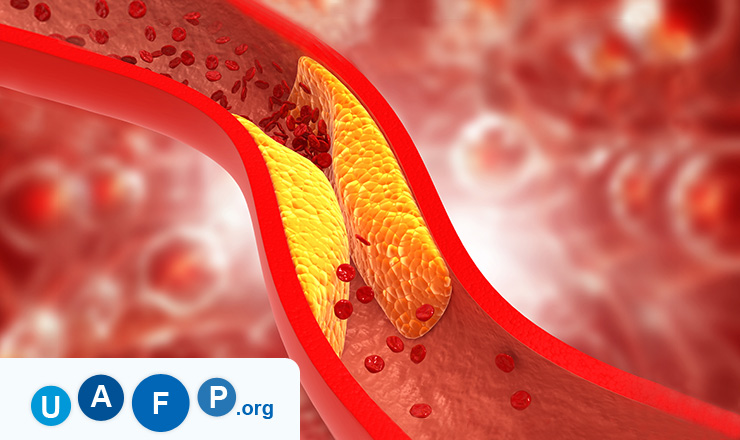How to Lower Blood Cholesterol Levels?

Cholesterol plays a very important role for every human body. But due to improper lifestyle and unhealthy diet, it accumulates in excess and harms the body. High blood cholesterol is not safe for the human body.
What is Cholesterol?
Cholesterol is a fat-like substance that we get when we consume food of animal origin and is also synthesised independently in our liver. Cholesterol is a component of the membranes of body cells, which is essential for the body to produce sex hormones, bile acids, nerve cells. It is one of the most powerful antioxidants in the body. The greatest saturation of the body with cholesterol is provided by our liver. Also its replenishment in the body we receive through food.
But with excess cholesterol in our blood, it is deposited on the walls of blood vessels and as a result, atherosclerosis occurs. Once deposited on the walls of blood vessels atherosclerotic plaques are formed, preventing blood supply to the brain and other organs. As a consequence, there is a threat of myocardial infarction, ischaemic stroke and even death. When cholesterol rises, gallstones may form in the gallbladder and cholelithiasis may develop.
So there is "bad" cholesterol and "healthy" cholesterol. There is no cholesterol in the human body in its pure form. Together with proteins and fats, it forms lipoprotein complexes, which are divided into two types:
- are high-density lipoproteins (HDL), which remove excess cholesterol from cells and carry it to the liver;
- low-density lipoproteins (LDL), which carry it from the liver to the tissues.
An imbalance in the ratio between these types of lipoproteins leads to atherosclerosis. Therefore, the main goal should not be to lower cholesterol, but to maintain its balance.
The normal blood cholesterol level should be 3.6-5.2 mmol/l. Patients with diabetes, people with cardiovascular disease should keep the level below 4.5 mmol / l. To determine the level of cholesterol it is enough to make a blood test.
Causes of High Cholesterol
The causes of elevated cholesterol can vary. The most common ones are:
- The presence of chronic diseases;
- heredity;
- age and gender;
- poor diet (excessive consumption of saturated fats);
- smoking and alcohol abuse.
In men, the disease most often manifests itself earlier, in middle age, while in women in the menopausal period. As a consequence, questions arise: how and with what to lower blood cholesterol?
How To Get Rid of Cholesterol?
First of all, you should pay attention to the consumption of food products, because this is a fundamental factor in influencing the level of cholesterol. There are foods that lower and raise cholesterol levels.
Foods that lower the level:
- Tea or coffee without sugar, juices, mineral water;
- vegetables and fruit;
- white fish, especially sea fish, fatty fish;
- skinless chicken breast, turkey, infrequently lean beef, veal, lamb meat;
- milk up to 1% fat, low-fat cheeses, fermented milk products, egg white;
- porridge on water, rice, coarse bread, durum wheat pasta, legumes;
- vegetable oils, fish oil in capsules.
Foods that raise cholesterol:
- White bread, baked goods, pastries;
- caviar, shrimp, crab, squid, octopus;
- fatty meats, duck, goose, bacon, sausages, tinned foods;
- fast food;
- high-fat dairy and fermented milk products, mayonnaise and sauces;
- sugary drinks, sodas, cocoa and hot chocolate, alcohol.
Cook dishes better steamed, meat boiled, exclude frying. When cooking broths, remove the top layer of fat. Vegetables are better to eat raw, you can add lemon juice to salads. Eliminate the use of tobacco and limit alcohol consumption.
Be sure to maintain a mobile lifestyle, it will help to be in shape and keep your BMI normal. Avoid overloading the nervous system, as stress on the body negatively affects the cardiovascular system.
What is the Best Drink to Lower Cholesterol?
There is no single "best" drink that can significantly lower cholesterol on its own. However, there are several beverages that, when consumed as part of a heart-healthy diet, may help you manage your cholesterol levels. It's important to note that managing cholesterol involves a combination of dietary choices, exercise, and, in some cases, medication. Here are some drinks that can contribute to a heart-healthy diet:
Green Tea: Green tea contains compounds called catechins, which may have a beneficial effect on cholesterol levels. Regular consumption of green tea is associated with lower LDL (bad) cholesterol levels.
Black Tea: Black tea may also have cholesterol-lowering properties, although its effects may be milder compared to green tea.
Water: Staying well-hydrated is important for overall health, and it can help support your body's metabolism, including the breakdown of cholesterol.
Red Wine (in moderation): Some studies suggest that moderate consumption of red wine, particularly due to the presence of resveratrol, may have a positive effect on heart health. However, moderation is key, as excessive alcohol consumption can have adverse effects.
Beet Juice: Beet juice is rich in nitrates, which may help improve blood vessel function and potentially have a positive impact on cholesterol levels.
Oatmeal Smoothies: Combining oatmeal with ingredients like fruits, yogurt, and skim milk in a smoothie can be a heart-healthy choice. Oats are high in soluble fiber, which can help lower LDL cholesterol.
Plant Sterol-Enriched Drinks: Some specialized beverages are fortified with plant sterols or stanols, which can help reduce LDL cholesterol levels. These products are typically available in the form of fruit juices or dairy alternatives.
The easiest way to protect yourself from atherosclerosis and its consequences is to follow the principles of a healthy diet, move more and give up bad habits.




